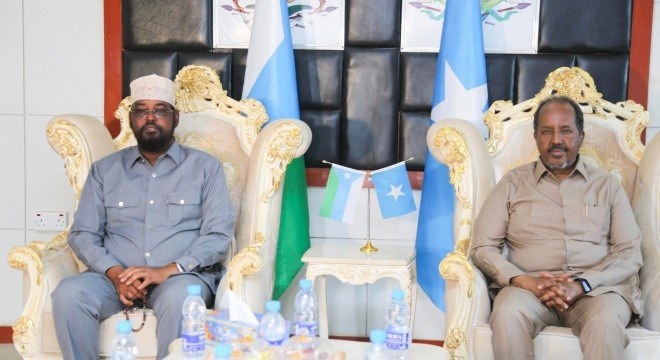Facebook Twitter (X) Instagram Somali Magazine - People's Magazine
A Somali court in Mogadishu has issued an arrest warrant against Ahmed Madobe, the re-elected president of Jubaland, on charges including “undermining national unity.” This development marks a significant escalation in the strained relationship between the Somali federal government and Jubaland’s leadership.
Arrest Warrant Details
The Benadir Regional Court approved the Somali attorney general’s request to arrest Ahmed Madobe on Wednesday. The warrant orders the Somali National Police Commander to apprehend the Jubaland president and present him before the court. Madobe faces allegations of high treason, passing sensitive information to foreign entities, and attacking the constitutional framework of Somalia.
This action follows Madobe’s re-election earlier in the week, a process rejected by Somalia’s federal government as unconstitutional. The government argues that Madobe has exceeded the two-term limit established by the constitution, deeming his third-term bid “illegal.”
Disputed Re-Election
Ahmed Madobe was re-elected for a third term on Monday by Jubaland’s regional parliament. However, the federal government in Mogadishu did not recognize the election results, claiming the process violated constitutional mandates. Madobe, who has held power since 2012, secured his position with significant support from regional lawmakers despite federal opposition.
Somalia’s federal authorities have expressed a desire to postpone regional elections, including in Jubaland, to align with national plans to introduce universal suffrage in 2025. Currently, Somali elections are conducted through an indirect system involving clan chiefs, a model the federal government aims to replace with direct voting to strengthen democratic governance.
Background and Historical Context
Ahmed Madobe, a former warlord, first rose to prominence in 2012 after ousting al-Shabaab militants from Kismayo, the capital of Jubaland, with the help of Kenyan troops. Jubaland, known for its lush resources and strategic importance, has often been at the center of tensions between Somalia’s central government and neighboring countries. Kenya and Ethiopia view the region as a crucial buffer against al-Shabaab, which has carried out numerous attacks in both nations.
Jubaland remains one of Somalia’s five semi-autonomous states, alongside Puntland, Galmudug, Hirshabelle, and South West. Somalia’s federal structure often leads to disputes between Mogadishu and regional administrations over power-sharing, electoral processes, and security responsibilities.
Federal Push for Electoral Reform
The Somali government has been advocating for reforms to implement direct elections nationwide. Proponents argue that universal suffrage will create a more transparent and accountable electoral system. However, regional leaders, including Madobe, have expressed resistance, fearing such changes could undermine their autonomy and influence.
Amid these tensions, Jubaland’s parliament has moved forward by establishing an 18-member electoral commission to organize future elections, demonstrating the state’s intent to maintain its autonomy.
Implications for Somalia’s Stability
The arrest warrant against Ahmed Madobe deepens divisions between Mogadishu and Jubaland, raising concerns about potential instability. Political analysts warn that escalating tensions could embolden al-Shabaab militants, who continue to pose a significant threat across Somalia.
Kenya and Ethiopia, both key stakeholders in Jubaland’s stability, are closely monitoring the situation. As allies in the fight against al-Shabaab, their cooperation with Jubaland’s leadership remains critical to regional security.
The Way Forward
Observers stress the need for dialogue to resolve the growing rift between Somalia’s central government and its semi-autonomous regions. Without reconciliation, the country risks further destabilization, undermining progress toward national unity and democratic reforms.

